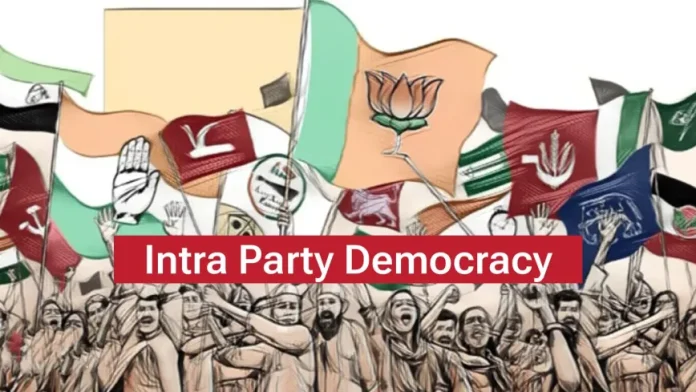- One of the most congruent aspects of a democratic form of governance is the opportunity extended to people and their elected representatives forming various political parties to air their differences openly without worrying about the consequences. The Constitution-mandated rights in the context of every democratic country are the foundation with which the authority flows. Thus, every elected representative is not only bestowed with the task of policymaking but also ensuring the governance to deliver those decisions reaches the last man standing. The tenet of democracy remains similar around the world with small variations in the form of administrative matters thrown in for good measure.

PC:The Economic Times
The policymakers viz. the executive and the legislature representing political parties have the task cut out for pushing ahead with the growth agenda for the country. It’s an irrefutable fact that the political parties to thrive should also inculcate intraparty democracy which is so essential for the overall health of the country itself. The whole world woke up to what transpired in South Korea which was no less than a drama as it unfolded. Reassuringly, the quick reversal by South Korea’s National Assembly of President Yoon Suk Yeol’s shock announcement of martial law highlights the essentiality of intraparty dissent in maintaining democratic practice. That South Korea’s constitution states the president must follow the legislature’s decision is a great countercheck.

PC:India Today
- Yoon’s decision to radically switch to military rule was defeated by parliament in a unanimous vote – all 190 present voted, including 18 of Yoon’s party. It wasn’t opposition legislators alone who raced to block the measure. Yoon’s own People’s Power Party dissented – its leader called the act the wrong move. It speaks volumes about the intrinsic value of dissent within parties. Of course, Seoul’s may be an extreme case, but in intraparty dissent lies the potential to expand upon a party’s ideascape. Political parties settle into policy approaches party brass are loath to budge on. But clinging to what brought success in a set of circumstances has little to do with stability or ideology. It has more to do with a lack of imagination and failure to recognize a fundamental.
)
PC:Firstpost
- Further, the parties need to stay up to speed with economic, tech, and societal shifts on the home front and globally. For survival, responsiveness to people’s needs – real, created, perceived – is key. It is dissenters who fire up their party with different, even radical, takes. It’s dissent that prevents the development of echo chambers and rigid groupthink. Different perspectives lead to robust policy development. Agreed, dissenters can impede party unity, but control of factional fallout is what intraparty democracy is expected to deliver. Allowing a free flow of ideas, being a platform to air new approaches, and reducing party members’ probability of defection. Welcoming rebellious behaviour on policy votes fares better in cementing party loyalty.






